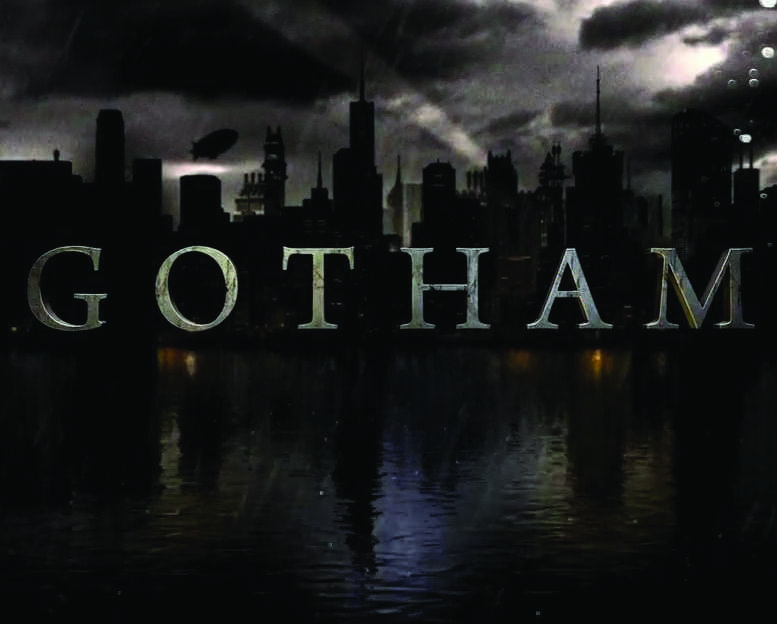Jeff Neukom
The fictional city of Gotham has always been identified by its mystique. If we’re being honest, it’s always been identified by a certain caped crusader who masquerades as a bat. But take away the cape and cowl and we’re left with a city full of shadows—a city full of strange characters. FOX’s new television show, Gotham, boasts all of the mystique but none of the bat.
Creating a show about Gotham without the famous Batman is a risky undertaking, and will inevitably provoke (if it hasn’t already) the question, “What’s the point?” Personally, when I heard that ABC would host “Marvel’s Agents of S.H.I.E.L.D.,” that was my first question. Before I’d even gotten the question fully out of my mouth, I knew the answer: to schmooze viewers using the fame and success of Marvel Comics’ Avengers film.
With FOX’s Gotham, on the other hand, I didn’t feel the immediate cynical response. I felt that the show truly had a purpose—to examine a realm of the Batman lore that has previously not received as much attention: who is Detective Jim Gordon without the ‘ole Bat? What happens to the city of Gotham that creates such a need for a brooding superhero?
On the topic of Jim Gordon, he is played by Ben McKenzie of O.C. and Southland fame. The casting struck me as a good one, with McKenzie giving Gordon more of a hard-nosed, no-nonsense aura than he has had in previous reincarnations. As the show went on, McKenzie grew on me. While his rendition of Gordon seems a bit morose and jaded, I respected his fervor for justice, and he makes the detective a pretty likable guy.
In the comics, Gordon is a war hero, and McKenzie certainly pulls off the soldier identity as the streets of Gotham become his new battlefield. What I would like to see as the show progresses is a bit of explanation as to why Gordon is such a straight-arrow do-gooder. Is his moral compass just extremely well aligned or is there a reason for his dedication to justice?
The show did not attempt to mask the first villain Gordon will soon come to grips with, introducing him early and without much ado: Oswald Cobblepott, the Penguin. As a character, the Penguin has historically been laughed at and treated as a joke. Brought to life by Robin Lord Taylor, Gotham’s version of the belittled character is not someone to be trifled with.
He establishes agency, something that is not usually associated with his character. His agency develops over the course of the episode, beginning as a timid lackey to Fish Mooney, a Carmine Falcone lieutenant working Gotham’s Theater District and ending as a determined but not quite maniacal force who has no qualms about killing a fisherman in the park (and with larger dreams of vanquishing Fish Mooney and Falcone).
I’ve never been the biggest advocate of the Penguin, but Taylor’s performance is to be praised. Even after watching for only a few seconds, I knew he was going to become the Penguin even before I was told. His appearance was spot-on, and it was clear that he also harbored a quick wit under the surface.
In some comic retellings of his origin, the Penguin is said to have a hip injury of some sort, which causes him to walk with a bit of a waddle (hence his name). What I loved about Gotham’s version was that his waddle was caused by a vicious hit to his ankle after he’d upset his boss, Mooney. The reason I loved it was its subtlety. At the time, I didn’t realize the significance of Mooney’s attack. I didn’t understand it until I saw him hobbling down the street out of town.
Greatness of the Penguin aside, the pilot wasn’t perfect. We are immediately exposed to familiar foes of Batman, albeit in passing. We see a young Poison Ivy, here named Ivy Pepper. We are exposed to Selina Kyle, otherwise known as Catwoman. We meet Edward Nigma, a lab assistant who is already attached to riddles. With all of these cameos, the show feels a bit crowded.
Not to mention, it almost feels like the show is pandering to an audience unfamiliar with Batman backstory. It’s too obvious. The fact that a young Selina Kyle is nicknamed “Cat,” Ivy Pepper’s name (in comics it was Pamela Isley) is a dead giveaway and that Edward Nigma delivers his lab findings in the form of complicated queries is just a bit much. It’s not enough to be a turnoff for Batman fans, but it was a little insulting. I would have rather had these characters slyly introduced over time instead of all at once.
All in all, Gotham started its legacy doing, for the most part, everything right. I think the show’s challenge will be creating a truly unique identity for the show. Otherwise, I fear the show will free fall into the typical hero-cop abyss. With a pilot, there are always questions to be answered, and from what I’ve seen so far from Gotham, I’m interested in those answers.

